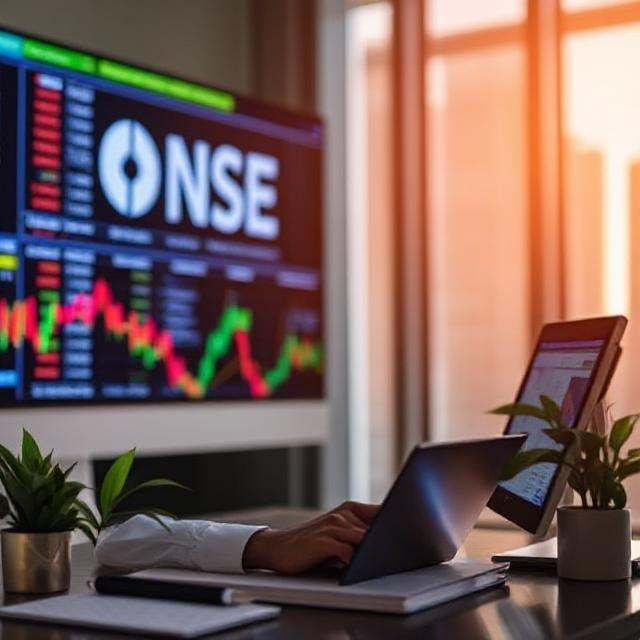Traders can take advantage of short-term price fluctuations with NSE margin and engage in intraday trading which allows for the simultaneous buying and selling of securities within a single day. Margin trading is one of the elements of this method, allowing traders to obtain funds from a broker and increase their purchasing power..
What Exactly does Margin Trading Refer to?
Margin Trading, in the context of National Stock Exchange (NSE) in India, refers to trading in buying by paying a fraction of the whole, where the broker pays the rest.
So, if the trade moves in a favorable way, this leverage increases profits. But you must know that leverage increases the possibility of making profit but it also increases the possibility of losing money if the market goes against you
How Margin Trading Works?
SEBI requires a minimum margin that the trader needs to maintain as a percentage of the total trade value. For example, if SEBI requires 20% as the margin requirement, then, to buy ₹100,000 worth of shares, a trader has to have only ₹20,000 in the account, while the remaining ₹80,000 is provided by the broker. This allows a trader to carry larger positions than their cash balance would permit.
Benefits of Margin Trading in Intraday Trading
Greater Buying Power
Funding from margin trading allows a trader to buy more securities than they are able to with their own capital, thereby producing greater profits because of favorable market movements.
Opportunity to Diversify
With additional funds, traders can diversify their intraday positions across different securities, sectors, or strategies, thereby reducing risk.
Market Opportunities Utilization
Using margin trading allows a trader to seize market opportunities more rapidly without the need to accumulate sufficient capital in advance.
Risks Associated with Margin Trading
Increased Financial Losses
Market makers may find it attractive to loan out their existing funds as it increases their chances of generating more returns. However, it takes only one adverse market change for these same funds to get wiped out.
Being Issued a Margin Call
Even professional traders with a vast amount of experience under their belt are subject to their broker’s decisions. For example, if a trader buys shares on margin and the price of the shares goes too low, then the broker will most likely issue the trader a margin call.
Additional Costs
With every broker/trading firm, it is seldom offered the ability to trade without the burden of having to pay back any borrowed money along with interest rates on top, making it difficult to be financially efficient.
The Regulatory Framework:
In India, the Securities and Exchange Board of India (SEBI) oversees margin trading funding and has published certain measures that care for investors and uphold the integrity of the securities market.
These include eligibility of securities, minimum margin requirements as well as the duties of traders and brokers. Because of this regulatory framework, traders have to operate with due regard to the rules and regulations in order not to be subjected to penalties or even a liquidation of some or all of their positions.
These include eligibility of securities, minimum margin requirements, and responsibilities of brokers and traders. The trader should be cognizant of the regulatory framework and see to it that they comply with the rules and regulations so as not to be liable to any penalties or to lose any of their positions.

